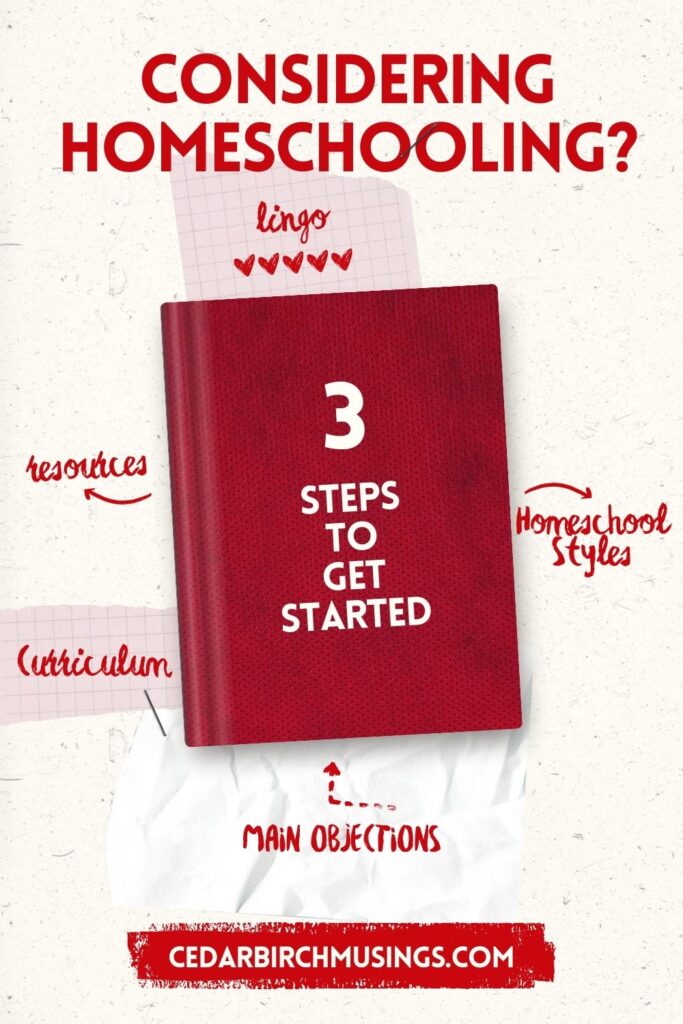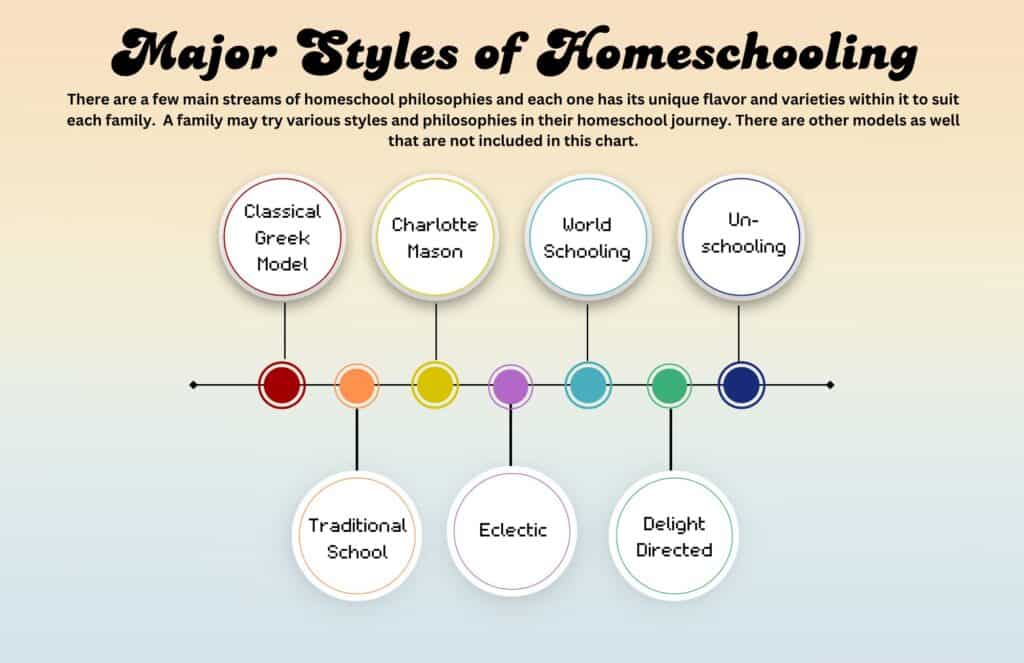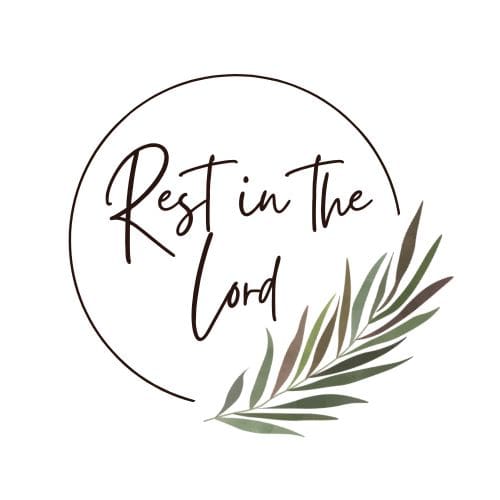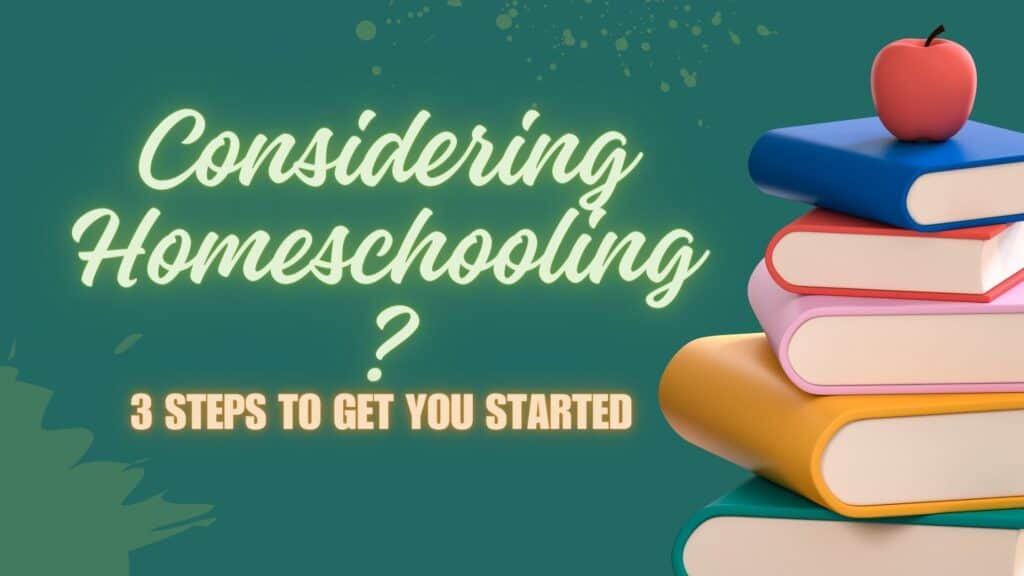When you begin considering homeschooling it can quickly get overwhelming with all the information out there– mutiple options, catalogs, opinions, styles, subjects…… on and on. All those options are great though considering that not long ago it was practically illegal to homeschool in many states and there were only one or two options out there. Trying to sift through what to do first can get murky. Here are some helpful first steps in your research gathering.
This post contains affiliate links, which means I receive a small commission, at no extra cost to you, if you make a purchase using links provided. Please see my disclosure page for more details.

First Up: State Laws About Homeschooling
The very first thing you need to check are the local laws of your state. The state laws will tell you what you are required to do to legally homeschool, when you need to declare your intent to the local school district so your child is not “truent”, and what is expected of you as a parent. Don’t worry, this can be pretty straight forward. The Homeschool Legal Defense Association (HSLDA) is the go-to organization and website to look up your particular state and pretty much anything pertaining to homeschool. If you live in Washington State, the Washington Homeschool Organization (WHO) is a great state specific organization to check out when getting started to help you decipher what the law is AND isn’t. Knowing what it isn’t is just as important.

Next: Check Out Some Homeschool Styles and Philosophies. Look at the “lingo”.
If you’re not withdrawing your child from school asap and under a massive ttime constraint to get started homeschooling, you can spend a little bit more time exploring some of the styles or philosophies of homeschooling. There is a wide spectrum of “flavors” to homeschooling from the classical Greek model to complete unschooling. Many beginning homeschool families will pick a published curriculum to follow in one of these styles to start with and get their feet under them while starting their journey *changing only the things they have already done). After they are more comfortable with home education, they may venture off into their own style and what works for their own individual rhythm.

Remember: it can take a year or two to figure out what style your family will end up finding a groove or rhythm in if you’re just starting out homeschooling especially with very young children. That’s normal and OK. Change what’s not working, save what is, meld together styles that work. The older the child gets, the less time it takes to figure out what style they would gravitate towards. For the high schooler who is being pulled out of school and needs to start asap, zero in on the style that would fit the best and start there. In that situation, it might be best to start and stick with the same plan for consistency to finish school and only change something if it’s glaringly the wrong teaching style or change subjects that you’ve already covered.
Classical
The classical Greek model follows the triumverate: three stages of growth and developing reason. A classical edcucation is very structured and leans towards the classical languages of Greek or Latin, the classical sciences, history, and logic. The younger children are learning facts and memorization, the middle stage is growing reasoning skills, and the third stage is rhetoric and logic (many using the Socratic Method). A very poplular homeschool choice for this style is Classical Conversations— with chapters all across the country. In each chapter, students meet once a week for short lessons and go home to finish them for the rest of the week. Parent teachers lead the lessons while in the meetings and are paid positions. Classical Conversations also proctors annual SAT testing as well as an option for transcripts. Memoria Press, Classical Academic Press, and Veritas Press are some classical style curriculum choices. A Well-Trained Mind offers classical online academy classes.
Traditional
Traditional schooling might closely follow a more formal school format in subject scope and sequence while at home. Many who homeschool temporarily will use this so that their child will not be out of sync when they return to school. A popular choice for this style would be joining a remote program through the local public school (e.i. PEARL) which will grant funds for approved curriculum, orchestrate field trips, and oversee progress through weekly or monthly teacher-student check-ups. A traditional model may also follow a stricly homeschool based curriculum without ties to the school system and just follows the traditional subjects with varying degrees of parental prep and involvement. A few options for this style would be ABEKA or Bob Jones curriculum, Easy Peasy curriculum, and Christian Light Education. There are many other options in this style. Some communities have organizations that meet once a week to go over traditional style lessons and give the home work for the rest of the week. An example of a local option: Homelink of Yakima. Masterbooks offers curriculum and online academy classes as well.
Charlotte Mason
Charlotte Mason was an educator in the 1800’s who started a school and a whole movement away from “boring” history facts and rote memorization to a living education. The main difference is using living stories from historical events and people who lived it to make them come alive, using narration and dictation, learning art, nature study, and life skills alongside traditional subjects. She published her philosophy in her book on Education which is still widely read. This is a good option for those who want a greater degree of a nature study emphasis to their home while still hitting the core subjects of traditional schooling. A great minimalist choice for this style is Lamp and Light for multi-ages or Simply Charlotte Mason curriculum. You can read my review of these two from our experience with both. Beautiful Feet books offers a wonderful selection. For a more rigorous Charlotte Mason style curriculum that leans more towards the traditional approach, Heart of Dakota and Sonlight would be good spines to follow. I often check these two websites for reading book recommendations.
Eclectic
Eclectic homeschooling is just that- eclectic. A mix and match of styles and book choices across the subjects. Sometimes an all-in-one curriculum might have a particular subject book choice that doesn’t fit your child. Maybe it works for one of the children but not the others. This will often happen in the subject of math. Branching off from the text to fill that subject with a different book choice is what will fall under eclectic. Eclectic may also represent the family who does not want to use a prescribed daily schedule or specific subjects and timelines planned out for them. This style will often grow out of frustration using a box curriculum or with experience knowing your child and what works for them. Unit studies are a common method in the eclectic style and a great way to introduce a mix of interests among your children to create curiosity and fascination. A few great websites for unit studies include: Our Journey Westward, Powerline Productions, and our favorite for littles: Five In a Row. An eclectic hands-on curriculum put together for you is also through Timberdoodle Company.
Delight Directed
Often confused with and can overlap into unschooling or eclectic, delight directed is a form of homeschooling that typically spends a segment of time each day covering the core subjects of math, reading, and writing but lets freedom of the other, a few chosen, or all the subjects be fine tuned to the child’s developing talents and interests. This is not letting the child do whatever they want with their day, its adjusting the topic within a subject to match the child. For example: if your child is greatly interested in sports, let their chosen sport fill a “PE” credit. If your child is into guitar, let guitar be the “fine art” credit. Fit the subject matter to the child and not force a set program onto the child that results in resistance. If your child is into watercolor but could care less about artist study, take watercolor classes. It is quite amazing to see how much a child learns and retains when they are given some say in how a subject will be studied at the time. Strewing is often a popular practice in this style. Local tech schools and apprentiships fit well in this style. One local example: YVTECH
World Schooling
World schooling overlaps with delight directed and unschooling to some degree by using orchestrated core subjects and letting life skills, nature, geography, history, etc. be absorbed and experienced through travelling to other cultures and diving into it. For example: traveling to Italy for an extended time a child can experience the culture, geography, history, flavors, habits, local handicraft skills of the areas, taking part in local workshops, and spending time in the non-touristy areas. Some families will emphasize a project or handicraft, learning a skill, cooking, or a report be done for each location. This is popular among the sailing community for fishing, scuba diving, and also nomadic lifestyles. Some missionary families will do this. Check out WorldTravelFamily, Travelynnfamily, and Sailing Zatara (who just finished up all four of their children while sailing around the world on a catamaran).
Unschooling
Unschooling is a movement started by John Holt in the ’70’s as an answer to the failing school system and the politics of the traditional school structure. It is based on the life learning of children who are given attention, interaction, and involvement of parents in daily life. There is a HUGE spectrum of unschooling from life on a farm learning math through building a barn to completion, overlapping with delight directed style, and all the way to child led days left to their own time and going to bed when they want. A type of unschooling called deschooling may be necessary for a time if a child is being pulled out of a bad situation at school due to failing to thrive or bullying before moving on to other styles of homeschooling. Often times the child in that situation is “burned out” with learning and needs to pull away from traditional schooling of any kind for awhile to regain their equilibrium. After that pause to unschool, “strew”, take field trips and rest– they may be ready and refreshed to begin with a more strucured homeschool day. And in case your wondering: unschoolers will often do well in college. A few families to follow and learn how this works: Unschoolingmom2mom and the homeschoolmom.
Third: Check out the local options to connect
If you are looking for some hands-on learning classes, social events for homeschooling, field trips, or conventions the local community is a great place to start asking around. You will likely find Classical Conversations chapters as well as other co-ops and events that happen that are not readily apparent. The Washington Homeschool Organization lists co-ops and support groups based on regions in Washington. Sometimes the way to find these other options is through mom groups at church or umbrella homeschool organizations such as Christian Association of Parent Educators (CAPE), Christian Heritage Home Educators, or homeschool conventions (the Homeschool Compass has a list by state). Many great co-ops are not advertised as they would be overrun very quickly and are through word of mouth only. These small co-ops are a handful of moms who gather together and start their own co-op or plan field trips together. You might learn of these through church, MOPS, or local business homeschool classes by rubbing shoulders with the other moms at the class with their kids. Maybe you are the next coordinator of a relaxed co-op?
Don’t overlook local businesses either. Many offer homeschool hours, homeschool classes, or work well for homeschoolers. For example:
- Our local pool offers homeschool swim during the afternoon slow time seasonally.
- The local gymnastics facility offered a homeschool tumbling class for littles.
- The library offers craft times in many locations.
- If you have a Maker Space, this is a wonderful option for the middle to high school students for classes and workshops.
- The local trampoline park sometimes has a homeschool hour seasonally.
- A local springbreak fencing lesson workshop was offered.
- Local dance studios will often have homeschool sessions for different ages.
- The local Lowes or Home Depot offers hands-on workshops for elementary ages.
- Local museums and art galleries will often have side classes that work well for homeschoolers.
- A business might consider a homeschool session or field trip if you approach them. They may require a certain number of homeschool children in order to do the class but if you know other homeschool families, you can put the word out there and get it scheduled.
- Even the local driver’s ed instructor might offer a homeschool class series.
- The local fire department will often give a tour as a field trip for a group of homeschoolers. This is a really fun one for littles.
But what if my child is younger than kindergarten?
Children under kindergarten age are undergoing a blaze of development in their physical structure and brain growth. Much of this is happening through play and exploration. Their hands physiologically are not yet ready to be pushed into correct formal writing. The very best thing you can do is spend time reading to them every day and interact with them during play. It’s amazing what they pick up just by watching you read and listening to stories. Some great resources for the very young:
- Hundred Acre Woods is a gentle start curriculum for the littles as well as Confessions of a Homeschooler.
- Slow and Steady Get Me Ready by June Oberlander is a great resource for guided small exercises to use with your very young children from birth to kindergarten.
- Five in a Row is a gentle series for preschool to kindergarten. We have fond memories of this.
- Teach Your Child to Read in 100 Lessons is constantly passed around in our homeschool community.
- No list is complete without the Bob Books — classic for the littles.
- For the moms: A Pocketful Full of Pinecones is a must for setting the hygge setting of your home.
- If you would like a pre-school curriculum put together for you, Timberdoodle has a great selection of hands-on pieces and kits.
- The KiwiCo. puts together age appropriate STEM and handiwork skills boxes and sends them to you on a monthly basis. Our teen friend made an actual working guitar with a kit from them.
The Biggest Mindset Hurdles for Homeschooling
- 1. I will ruin my child by messing up on something. This is the fear of every parent when they first undertake home education. At the end of the journey, if you have been involved and interested in the decisions made for your child’s education, you will be THE best person on earth to plan it out because you know them better then anyone else and are the most invested in them to succeed.
- 2. I’m not a teacher– I can’t teach math or science or art or…….. you don’t need to. There are a ton of resources already done for you in just about any subject. You just open the book or put in the dvd or stream the instructor and let it do the teaching for the subjects you aren’t familiar with. I know many homeschool moms who are on the end of their homeschool journey and are probably some of the smartest people in the country today because they’ve gone through Algebra multiple times WITH their kids amd learned it better now then they ever did back in high school. Check your state law about what is required to homeschool your children. You may have to have some college under your belt, or take a short parent educator workshop, or opt for a teacher orchestrated program.
- 3. How can we ever homeschool without two incomes? I get it. When you consider homeschooling, it is a choice that does effect your home income. It does mean less material wealth, less spendy vacations, etc. Some parents still work on the side from home and it can be done but you need to know that is going to be very difficult if you have small children who don’t nap anymore. This is probably the most scary thought for families in today’s current economy. Many people learned that they could do it when the pandemic hit and their kids had to be home anyway. It’s a hard decision to make and needs some planning but it’s worth it.
- 4. Following everything in the public school model. It is so incredibly hard to get the school training out of us if that is what we grew up knowing. It’s so ingrained that anything out of the mold feels like it’s not going to work and you’re back to the top reason on this list. As I look back on all the worry about if it would work to branch out and be different– man, I could have chilled out soooo much sooner. There are actually businesses and colleges looking for something different on the transcript or resume. Your state may dictate certain subjects that they require be covered at home, BUT that may dictate what type of topic is covered in that subject. For example: if your high schooler needs 4 social studies credits: that is wide open to pursue hundreds of different topics that would fall under that subject from world wars, the history of baseball, to the psychology of colors.
- 5. I know this may sound kindof bad but it’s the truth: many parents wonder how they will cope with having their kids home with them in-their-face all day. Just being real here– there’s a reason parents like it when summer is over. Once you’ve found a rhythm to your day with your kids and get plugged in to a homeschool community, you will find that you yourself have made friendships with other parents and look forward to the routine of your day. Until you find that rhythm and social network, you will need to be proactive and attentive about taking concentrated breaks.

- 6. How will I afford this? Isn’t homeschooling expensive? No it is not. You can spend as much as you want and the sky’s the limit on expenses for sure. Some curriculum is astronomically expensive and a lot is completely free. Dig around and you will find your budget in there– you do not need all the things. In fact, it’s better if you don’t. Get plugged into the homeschool community and you will find that book sharing and used curriculum is the heartbeat of the homeschool budget. Amazon, ebay, Abebooks, Powell’s, Thriftbooks, and homeschoolclassifieds are all places to get used curriculum. Checking out an annual homeschool convention is a great way to be able to thumb through curriculum to get an better view of it before buying. Christianbooks and Rainbow Resources are popular places to order curriculum new. Rainbow Resources Scholarship program and the HSLDA Grant program offer homeschool grants for curriculum and is worth filling out the application if you need this help. I spend a lot of time on Cathy Duffy’s curriculum reviews for ideas and input so I don’t waste time on curriculum that I won’t end up using. Local Facebook homeschool forums will usually have a flood of curriculum put up for sale by families getting done with it and passing it on. There are also funded state school programs that will oversee progress and allot a certain amount of money for school curriculum.
- 7. But will my kids end up weird and unsocialized, not ready for the real world? Not to be snarky but…this is an ancient argument from the 70’s and 80’s when homeschooling was more “underground” and is so passe that it would be hilarious if it wasn’t so ignorant. Homeschoolers are known for being able to interact with all ages and have a huge array of quality socialization. So much so, that sometimes it’s hard to stay home and actually homeschool. They are given many opportunities to have a rich network of friends that have an array of backgrounds and interests outside of a peer-aged only class at a school. Many homeschoolers are early to learn real life skills for vocations or entrepreneurial business and useful mangement of home, cars, budgets, and schedule simply because they are given the time to do it. And don’t forget, many homeschoolers do take classes in the community, at local schools, hybrid classes, duel enrollment, etc. Taking these class and workshop options here and there goes a long way in exposing your child to a formal classroom setting. I like to put it in perspective and ask if you’ve ever seen an awkward or withdrawn teen at a local school or walking down the sidewalk?. Hmmm, I would think that argument could be asked the other way around as well. And, yes, there are those examples of weird homeschoolers that have a weird family with weird dysfunction– just the same as a few non-homeschooling families in any school or community– but this is the weird exception and not the norm. No one like to be stereotyped and put into a box just because of one example that was seen or heard about.
- 8. You. You as the parent. You in your mind. If you have NO energy due to a medical condition, no interest, have mental instability, have a dysfunctional environment, hate people, have a child who is unteachable by you in particular– then homeschooling may not be the best for your kids. Homeschooling is not for everyone. There are some times I have responded that no, you should not homeschool if you are really truely asking me in those situations. And that’s ok, because it’s the best and safest decision for your family.

Pheuw, that’s a lot of information and there’s a whole lot more out there. But remember….
I hope you take the time to sit back, relax, take a deep breath, and remember to just enjoy your beautiful children and all the adventures you will get to have together. Now that I am on the tail end of our homeschool journey, I am reflecting on how the years are so sweet and resting in the knowledge that my goal really for all these years and through all the fluff comes down to this:
“I have no greater joy than to hear that my children walk in truth.”
3 John 1:4 KJV


